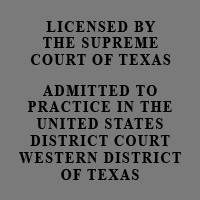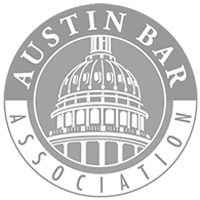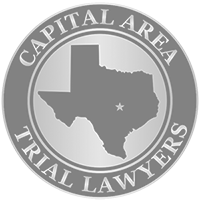CFTC Whistleblower Lawyer Helps Anonymous CFTC Whistleblowers Claim Rewards for Anonymously Reporting Illegal Conduct by CFTC Whistleblower Lawyer Jason Coomer
CFTC Whistleblower Lawyer, Jason Coomer, works with anonymous CFTC whistleblowers who want to earn large financial rewards. He commonly represents anonymous CFTC whistleblowers throughout the United States and World on CFTC whistleblower reward cases. He also often works with other CFTC Whistleblower Reward Lawyers to jointly represent anonymous whistleblowers. In working with these professionals, he files anonymous CFTC whistleblower reward cases with the CFTC. He also commonly files anonymous reward cases with the SEC. By working through a lawyer, these anonymous whistleblowers protect their identities, report illegal conduct, and earn financial rewards. If you are aware of significant violations of the Commodity Exchange Act or other illegal conduct, please report it. Further, please feel free to contact Anonymous CFTC Whistleblower Lawyer Jason Coomer via e-mail message or use our submission form with any questions. He and his co-counsel confidentially review potential CFTC Whistleblower Reward Cases.

Below are some helpful FAQs from a Commodity Futures Trading Commission CFTC Whistleblower Lawyer. The FAQs include general information regarding anonymous reporting of illegal conduct to the CFTC. These anonymous CFTC whistleblower tips commonly involve Commodity Exchange Act Violations, Market Manipulation Schemes, Money Laundering Schemes, and other Illegal Conduct:
Q1: What financial rewards does the Commodity Futures Trade Commission (CFTC) pay anonymous whistleblowers for exposing illegal conduct?A1: The CFTC pays between 10% and 30% of money recovered by the government to anonymous whistleblowers. The CFTC whistleblower must properly report significant illegal conduct in the financial markets. Further, the CFTC often makes extremely large recoveries as it regulates the commodities markets. More specifically, the CFTC regulates 1) currencies, 2) oil and gas, 3) swaps, 4) cryptocurrencies, and 5) precious metals. Based on the CFTC’s regulatory powers, the agency commonly fines large corporations and pays large financial rewards to whistleblowers.
Q2: Can CFTC whistleblowers report illegal conduct anonymously through a CFTC whistleblower lawyer and collect financial rewards?A2: Yes, CFTC whistleblower reward laws allow whistleblowers to anonymously report illegal conduct through a CFTC whistleblower lawyer. Further, anonymous whistleblower CFTC tips that result in agency fines pay large financial rewards. Further, these whistleblower reward laws also offer whistleblower protections to anonymous CFTC whistleblowers. The rewards and protections encourage professionals, employees, and investors with specialized knowledge of illegal conduct to report illegal schemes.
Q3: What illegal activity can be the basis of CFTC whistleblower reward tips?A3: The CFTC regulates several financial markets around the World. As such, the agency offers financial rewards on any relevant significant illegal schemes properly reported that result in a fine. Further, the fine needs to be more than $1 million. More specifically, the CFTC targets 1) market manipulation schemes, 2) investment fraud, 3) corrupt practices, 4) money laundering, 5) commodity spoofing schemes, and 6) insider trading schemes. The agency also regulates Swap Dealers, Trading Firms, Futures Commission Merchants, Commodity Pool Operators, Brokers, and other financial professionals. Therefore, anonymous tips regarding illegal conduct by these regulated entities and people also pay rewards. Please contact a CFTC whistleblower reward lawyer for information regarding a specific illegal scheme.
Q4: What is the advantage of working through a CFTC whistleblower lawyer?A4: A CFTC whistleblower lawyer allows a whistleblower to report an illegal scheme anonymously to the CFTC. This benefit protects the whistleblower's identity and often their career. Further, an anonymous whistleblower reward lawyer can also review a potential case to determine if it is a viable. The lawyer can also identify what whistleblower protections apply to corporate documents, evidence, and specific circumstances of a whistleblower. The attorney or legal team also helps organize evidence and prepare the Disclosure Statement. This legal guidance often makes the case easier to understand by the CFTC and improves the likelihood of an enforcement action.tions and other Illegal Schemes in the Financial Markets.
CFTC Whistleblower Lawyer Helps Anonymous CFTC Whistleblowers Earn Large Financial Rewards by Anonymously Reporting Illegal Schemes
CFTC Whistleblower Lawyer, Jason Coomer, works with Financial Professionals, High End Investors, and other anonymous whistleblowers to expose illegal conduct. More specifically, he helps these whistleblowers expose Commodity Exchange Act Violations, FCPA Violations, and SEA Violations. Further, his legal teams help anonymous whistleblowers report market manipulation schemes, investment fraud schemes, spoofing schemes, and other illegal schemes. For this reason, many anonymous CFTC whistleblowers are financial specialists with knowledge of swap markets, currency markets, and derivatives markets. Other CFTC whistleblowers include swap dealers, commodity traders, brokers, and other financial professionals. Further, his team helps investors and financial analysts report legal schemes detected through independent and expert analysis. They also commonly work with employees who have original information and specialized knowledge of illegal conduct. Overall, his teams represent individuals with specialized knowledge of illegal conduct regulated by the CFTC.
What is the Commodity Future Trading Commission and What does it Regulate
The CFTC is the Federal agency that regulates the trading of commodity futures and options contracts in the United States and takes action against firms suspected of illegally or fraudulently selling commodity futures and options. More specifically, the CFTC regulates the exchanges where futures or option contracts are traded. These exchanges or designated contract markets (DCMs) trade a large variety of commodities. Some of these commodities include 1) currencies, 2) oil and gas products, 3) swaps, 4) cryptocurrencies, 5) agricultural products, 6) some chemicals, 7) minerals, 8) cannabis, and 9) precious metals. Further, the CFTC regulates the New York Mercantile Exchange (NYMEX), Chicago Mercantile Exchange (CME), Chicago Board of Trade (CBOT), Intercontinental Exchange (ICE) and several other commodity exchanges.
Congress created the CFTC in 1974 as an independent agency with the mandate to regulate commodity futures and option markets in the United States. The agency's mandate has been renewed and expanded several times since then, most recently by the Commodity Futures Modernization Act of 2000. The CFTC's mission is to protect market users and the public from fraud, manipulation, and abusive practices related to the sale of commodity and financial futures and options, and to foster open, competitive, and financially sound futures and option markets.
Both The CFTC and SEC Reward Anonymous Whistleblowers Who Expose Financial Institutions Working With Criminals
Both the CFTC and SEC regulate the financial markets in the United States. As such, both agencies seek information regarding financial institutions who violate the BSA and other Anti-money Laundering Laws. More specifically, these agencies offer large financial rewards to anonymous whistleblowers who report money laundering. The CFTC seeks information regarding FCMs, CPOs, IBs, and other brokers/traders who launder money. While the SEC seeks anonymous tips regarding publicly traded financial institutes, financial advisers, and brokers who launder money. These laws also target financial firms and corporations who allow corrupt foreign officials to invest dirty money in the United States.Both The CFTC and SEC Reward Anonymous Whistleblowers Who Expose Financial Institutions Working With Criminals
Both the CFTC and SEC regulate the financial markets in the United States. As such, both agencies seek information regarding financial institutions who violate the Bank Secrecy Act and other Anti-money Laundering Laws. More specifically, these agencies offer large financial rewards to anonymous whistleblowers who report money laundering by FCMs, CPOs, IBs, financial advisers, and other brokers/traders. These laws also target financial firms who look the other way when criminals including corrupt foreign officials seek to invest in the United States.
Commodity Futures Trading Commission Whistleblower Lawyer Helps Expose Illegal Schemes in the Global Financial Markets and FEMs
As an International CFTC Whistleblower Reward Lawyer, Jason Coomer, works with international professionals and investors from around the World. More specifically, he works with anonymous whistleblowers to report illegal conduct in global financial markets including Foreign Exchange Markets (FEMs). Many of these FEMs receive CFTC oversight through multi-national regulatory agreements. However, because many of these exchanges impact the global financial markets, CFTC whistleblower rewards often apply. For this reason international professionals and investors should anonymously report significant illegal conduct in FEMs. They should also report international investors who manipulate US Markets from abroad and launder money into the global markets.
CFTC Whistleblower Lawyer Helps Expose Illegal Schemes in US Commodity Exchanges Including NYMEX and CME
As an anonymous CFTC Whistleblower Reward Lawyer, Jason Coomer, works with a variety of financial professionals to report illegal conduct. Further, he often represents CFTC whistleblowers who understand the currency markets, oil and gas markets, swaps markets, and other commodity markets. Many of these whistleblowers trade in the commodity exchanges. More specifically, they trade in the New York Mercantile Exchange (NYMEX) or Chicago Mercantile Exchange (CME). While other whistleblowers trade in other commodity exchanges including the Chicago Board of Trade (CBOT) and Intercontinental Exchange (ICE). In working with these high end and specialized whistleblowers, he helps them anonymously expose complicated market manipulation schemes. Together they identify and report illegal conduct that impacts vast sectors of the global economy. These CFTC whistleblowers through their efforts often help millions of people. They also improve the integrity of the global financial markets.
The CFTC Also Regulates The Swap Markets Including The Global Derivatives Markets
Section 733 of the Dodd-Frank Wall Street Reform and Consumer Protection Act (“Dodd-Frank Act”) provides that no person may operate a facility for the trading or processing of swaps unless the facility is registered as a swap execution facility (“SEF”) or as a designated contract market (“DCM”). The CFTC regulates both SEFs and DCMs as well as works with other financial agencies around the world to regulate global financial markets. These markets handle vast amounts of swap transactions. Illegal conduct in these markets can be the basis for CFTC whistleblower reward actions.
CFTC Whistleblower Reward Lawyers Review a Wide Variety of Illegal Schemes in the Financial Markets
In addition to regulating the Designated Contrat Markets and Swap Execution Facilities, the CFTC regulates Swap Dealers, Trading Firms, Futures Commission Merchants FCMs, Commodity Pool Operators, Introducing Brokers, and several other financial professionals who trade in the financial markets. As such, the CFTC seeks information regarding illegal and fraudulent activities committed by any of these financial professionals.
Commodity pool operators often solicit investments from friends, neighbors, co-workers, and fellow religious or social group members by using their reputations in the community or their personal relationships. In many cases, however, these investment schemes turn out to be fraudulent, and you can lose your entire investment, in many cases as a result of outright theft.
The Commodity Futures Trade Commission Often Fines Individuals and Firms Who Are Unregistered and Fraudulently Trade in Commodity Contracts
Individuals and firms that fraudulently solicit funds from investors for commodity futures and options trading are usually not registered with the CFTC. They may operate “Ponzi” schemes in which little or none of the money sent in by investors is ever invested as promised in the commodity markets. Instead, the operator of the scam steals the funds, and creates the illusion of a successful business by using some of the money put in by later investors to pay phony profits to earlier investors. This tactic makes it appear to investors that the investment is actually making money, which in turn attracts additional investors. Be wary of such payouts if you do not fully understand their source.
Commodity Futures Trading Commission CFTC Whistleblower Lawyer Helps Anonymous Whistleblowers Bring Cases Voluntarily and Qualify for CFTC Rewards
CFTC Whistleblower Reward claims like SEC Whistleblower Reward claims must be brought voluntarily under the Whistleblower Reward Programs to qualify for a financial. The whistleblower or whistleblowers must also be a natural person or natural persons, companies or other entity is not eligible to be CFTC financial fraud whistleblowers. Successful CFTC and SEC violation whistleblowers can collect financial rewards for whistleblower bounty actions that result in the imposition of monetary sanctions of greater than $1 million dollars.
Through CFTC Whistleblower Reward Cases, the CFTC awards between ten percent and thirty percent of the money collected by the CFTC to qualified whistleblowers who voluntarily provide original information about a violation of the Commodity Exchange Act or other laws that leads to a successful enforcement of an action brought by the CFTC and SEC that results in monetary sanctions exceeding $1,000,000.00.
What is a Futures Contract or an Option Contract and how does the Commodity Futures Trading Commission Regulate The Sale of Commodities?
A futures contract is an agreement to buy or sell in the future a specific quantity of a commodity at a specific price. Most futures contracts contemplate actual delivery of the commodity can take place to fulfill the contract. However, some futures contracts require cash settlement in lieu of delivery, and most contracts are liquidated before the delivery date. An option on a commodity futures contract gives the buyer of the option the right to convert the option into a futures contract. Futures and options typically must be executed on the floor of a commodity exchange. There are a few limited exceptions, but these contracts are heavily regulated. Further, the CFTC requires these contracts be traded only through persons and firms who are registered with the CFTC. The CFTC seeks anonymous CFTC whistleblower tips regarding unauthorized selling these contracts and unauthorized sellers.
CFTC Whistleblower Reward Lawyer Represents Investors Who Have Original Information of Significant Illegal Conduct
Monitoring the commodity futures market requires a highly coordinated effort including the efforts of investors. It is important that investors who are aware of illegal activities in the commodity futures market report illegal actions. Several different types of actions can be the basis of illegal conduct that result in CFTC fines and CFTC rewards. More specifically, these actions include 1) fraud, breach of fiduciary duty, unauthorized trading, misappropriation, churning, spoofing, nondisclosure, and wrongful liquidation.
The CFTC Targets Fraud, Misappropriation, and Breach of Fiduciary Duty
The CFTC targets illegal conduct including fraud, misappropriation, and breach of fiduciary duty by regulated firms, brokers, and traders. More specifically, the agency seeks anonymous tips regarding regulated firms that commit fraud by cheating or attempting to cheat consumers through false claims concerning the likelihood of profit or loss. They also regulate false or misleading statements about trading or about a salesperson, advisor, or the trading program. Further, any false or misleading statements about any other material fact relied on by investors in making a decision about futures or option trading can be fraud.
Further, brokers and salespersons have fiduciary duties in handling investor money. Those who fail to act with special care in handling investor money can be in violations of the Commodity Exchange Act or CFTC rules. These breaches of fiduciary duty can also be the basis of reward tips. Additionally, the CFTC seeks anonymous tips regarding broker unauthorized use or diversion of investor money deposited for the purpose of trading futures or options.
Brokers, Traders, and Other CFTC Regulated Professionals and Firms Should Avoid Churning, Spoofing, and Unauthorized Trades
CFTC reward tips also target churning schemes, spoofing schemes, and unauthorized trades. Financial professionals, employees, and investors who have original knowledge of brokers who churn, spoof, or make unauthorized trades should report the conduct. Churning is the excessive trading of an investor account for the purpose of producing commissions and with disregard of the investor's financial interests. Unauthorized trading are trades made by a broker without an investor's prior specific authorization or a written grant of authority to effect trades without your specific authorization.
The CFTC Also Seeks Information of Misconduct by Regulated Firms Including Failure to Supervise
The CFTC also uses anonymous CFTC reward tips to regulate financial firms that violate the Commodity Exchange Act and CFTC rules. More specifically, the agency seek tips regarding significant violations by regulated firms including Trading Firms, Futures Commission Merchants FCMs, Commodity Pool Operators, and Introducing Brokers. These violations include the above mentioned illegal schemes as well as failure to supervise or keep records. Failure to supervise violation occur when a supervisor fails to diligently oversee the handling of a customer account by the supervisor's partners, officers, employees, and agents.
CFTC Whistleblower Lawyer Works on Several Different Types of Whistleblower Reward Lawsuits
CFTC Whistleblower Reward Lawyer, Jason Coomer, works on several types of whistleblower reward lawsuits. More specifically, he works on SEC and CFTC Whistleblower Reward Lawsuits, Stimulus Fraud Whistleblower Lawsuits, and FFCA Whistleblower Lawsuits. The United States offers several types of whistleblower rewards. As such, it is important to understand what whistleblower rewards and whistleblower protections apply to specific illegal conduct. As an example, Medicare Fraud Whistleblower lawsuits are very different than CFTC Whistleblower Reward Tips. Further, understanding that SEC reward actions are different from CFTC reward actions. For this reason, whistleblowers often need a lawyer well versed in the different types of whistleblower reward laws. Additionally, whistleblower protections often vary between different laws and it is often crucial to know the best laws to use to report illegal conduct.
For more information on SEC Fraud Whistleblower Bounty Actions and Securities Fraud Whistleblower Bounty Actions, please go to the following Securities Fraud Whistleblower Lawyer SEC Bounty Actions.
Anonymous CFTC Whistleblower Lawyer Works With Anonymous Whistleblowers and Other Lawyers From Around the World to Expose Illegal Schemes in the Financial Markets
As an anonymous CFTC Whistleblower Lawyer, Jason S. Coomer, commonly works with anonymous whistleblowers. Further, he represents whistleblowers from throughout the World. Together they expose illegal schemes in the global financial markets. He also often works with other CFTC whistleblower lawyers. Through joint representations, they protect and represent anonymous whistleblowers from throughout the United States and the World. In doing so, the legal teams often help whistleblowers expose international schemes involving complicated investments.
His legal teams often include international lawyers from different countries or states. The legal teams also often help anonymous whistleblowers organize vast amounts of information needed to explain illegal schemes. Further, the teams often include specialists who understand complicated market information. There are also commonly lawyers that speak, read, and write in many different languages. Further, these legal teams often work together to help anonymous whistleblowers expose hard to detect crime and other illegal conduct. Many of these crimes originate from outside the United States, but impact the financial markets. Other crimes are committed by multinational corporations or investors working abroad. If you or your client have original information of significant illegal conduct in the financial markets, please feel free to contact CFTC Whistleblower Lawyer Jason Coomer via e-mail message.
Feel Free to Contact Us with any Questions
Associations




